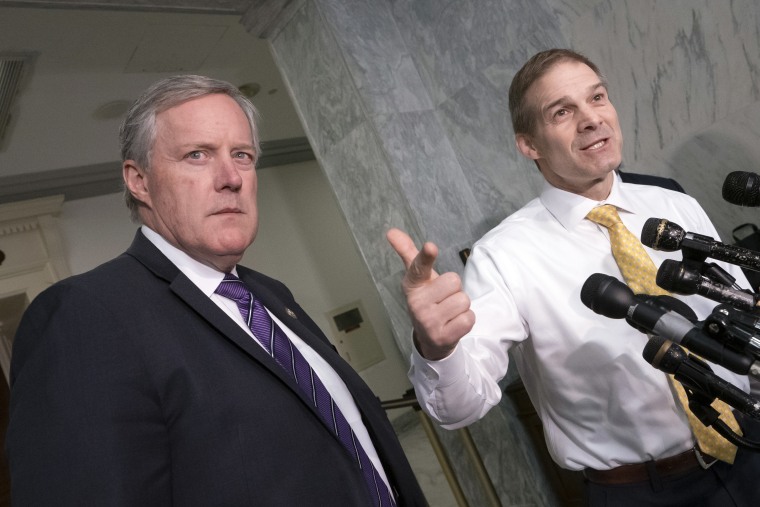Earlier this year, Democrats on the House Oversight Committee took an interest in how the pharmaceutical industry sets prices on prescription medications, and Chairman Elijah Cummings (D-Md.) reached out to the major drug companies for information. That seemingly anodyne effort quickly ran into a little trouble.
As regular readers know, Reps. Jim Jordan (R-Ohio) and Mark Meadows (R-N.C.) -- leaders of the right-wing House Freedom Caucus -- also reached out to Big Pharma and suggested that companies refuse to cooperate with the congressional inquiry.
As it happens, Oversight Committee Democrats are also examining state-level voter-suppression tactics, which as TPM reported yesterday, has led some of the same Republicans to reach out to state election officials, questioning the legitimacy of their congressional colleagues' requests for information.
In the letters, the Republican members of Congress don't explicitly tell those states not to comply with document requests sent last month by Democrats. Rather, the letters call into question any "valid legislative purpose" underlying the document requests and claim the inquiries raise "serious federalism concerns."The letters also claim that the document requests were sent by Oversight Chairman Elijah Cummings (D-MD) without consultation with GOP committee members or the representatives from the states themselves.
The Republican correspondence to state officials, signed by Jim Jordan and several of colleagues, said federal lawmakers believed it would be "prudent" to inform them of the concerns.
"With a Democratic president, there was no allegation too small to investigate," Elijah Cummings said this week, "but now that Donald Trump is in the White House, there is apparently no scandal too big to ignore."
At issue are suspected voter-suppression tactics in Texas, Georgia, and Kansas, each of which generated national headlines during the 2018 election cycle.
Because election administration is largely a state issue, there's a limit as to how much Congress can do to address the alleged injustices, especially after conservative Supreme Court justices gutted the Voting Rights Act.
That said, if Democrats intend to approve voting reforms in the coming years -- when, theoretically, they may have greater power -- they'll want to lay the policy groundwork now, collecting information from states like these about partisan hurdles intended to put barriers between Americans and the ballot box.
It's against this backdrop that Republicans on the Oversight Committee are suggesting to state election officials -- with very little subtlety -- that they shouldn't be too eager to comply with congressional document requests.
These efforts to undermine federal inquiries really isn't normal.
